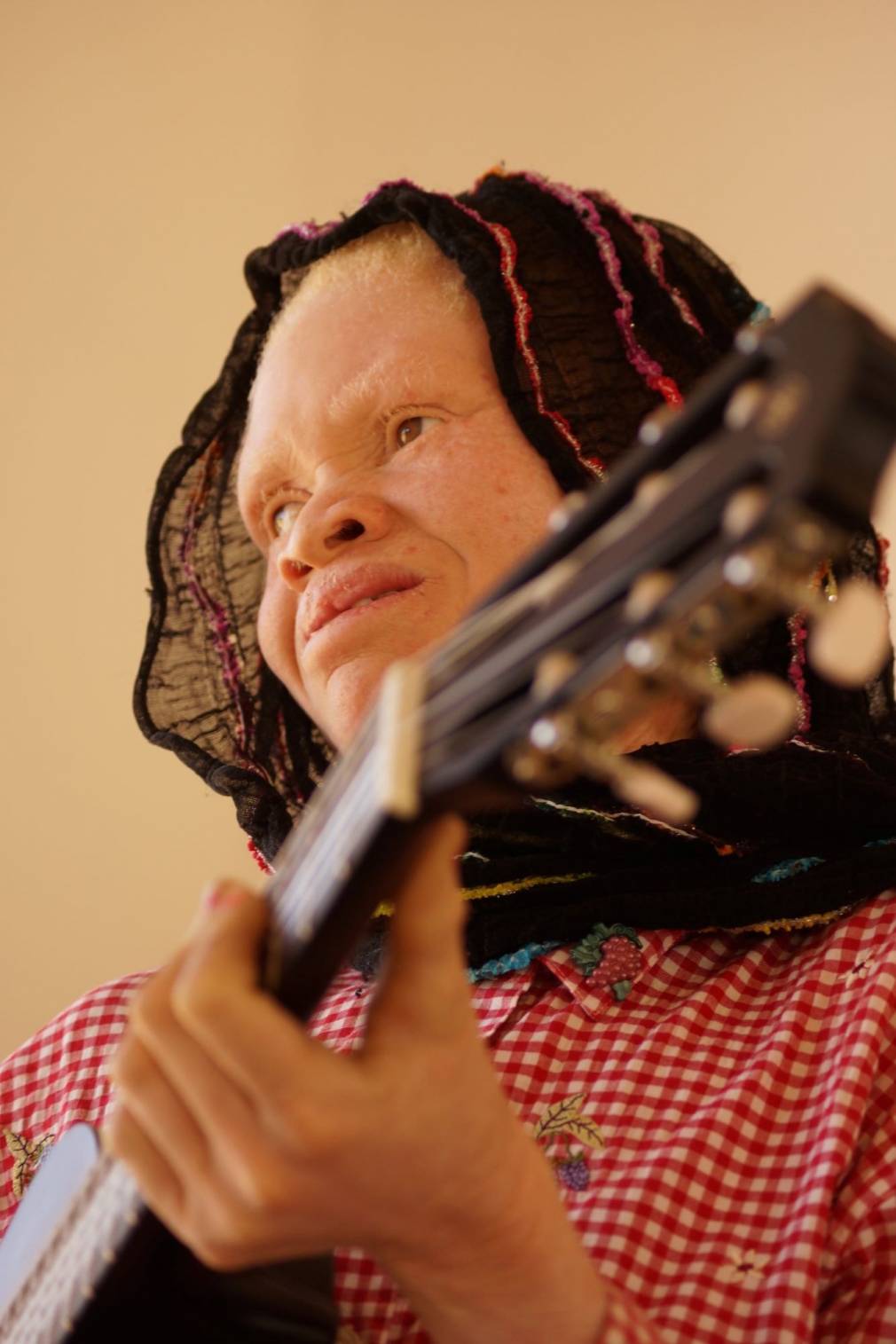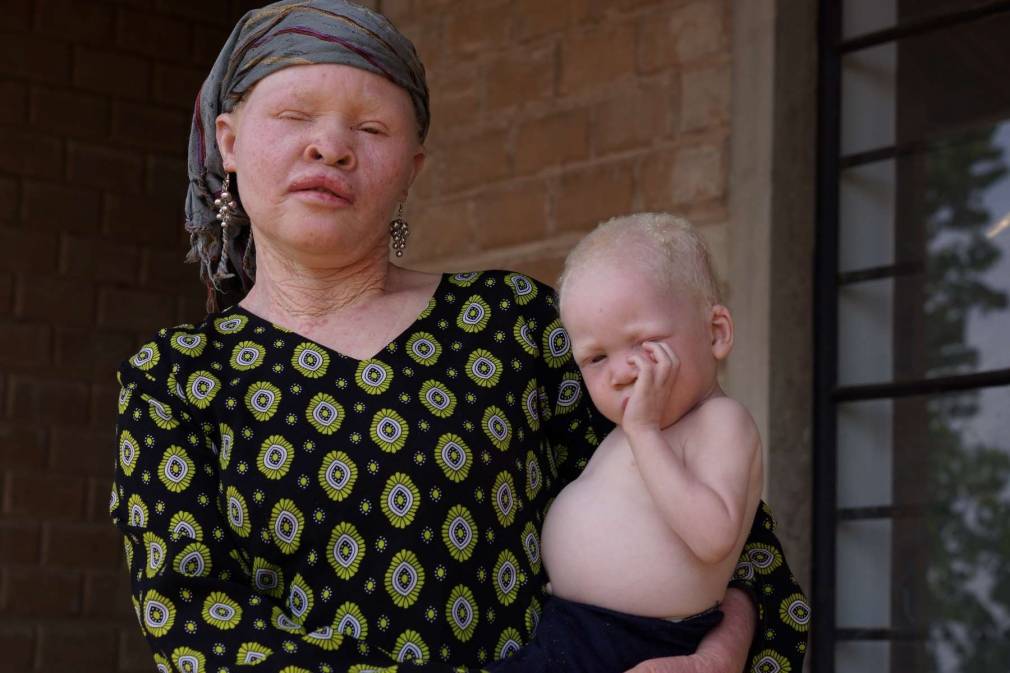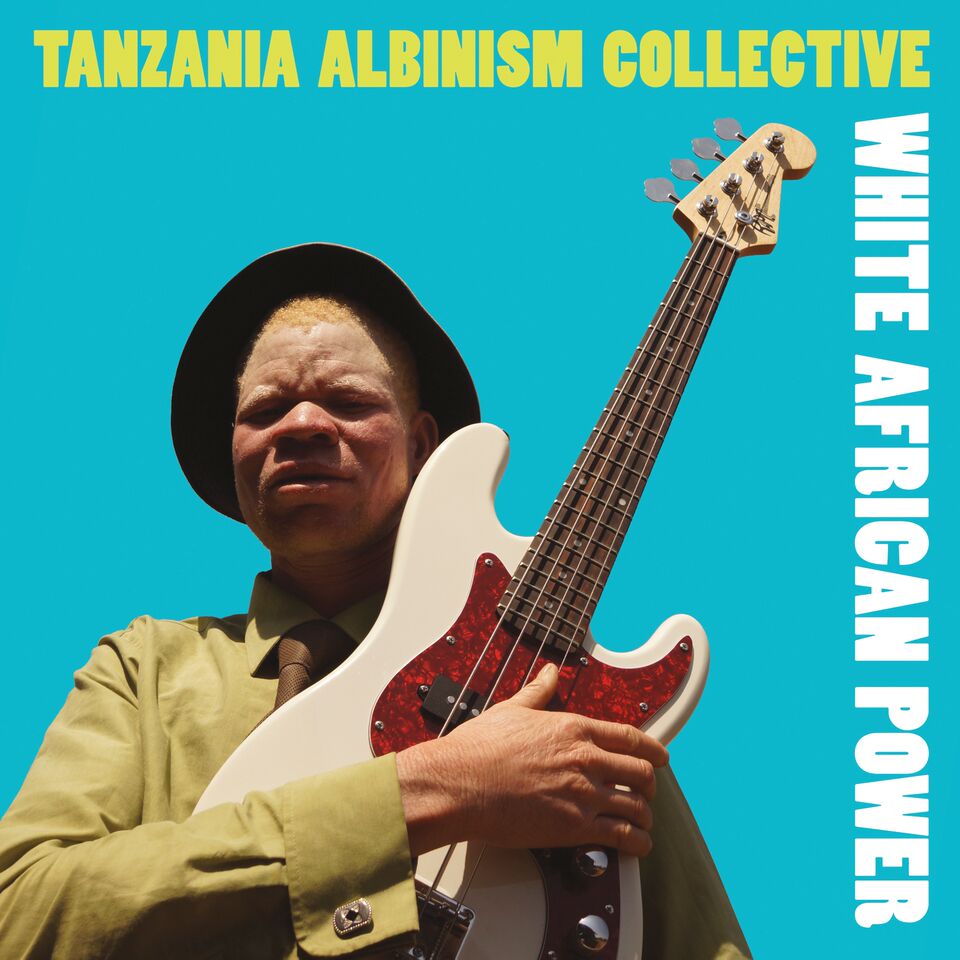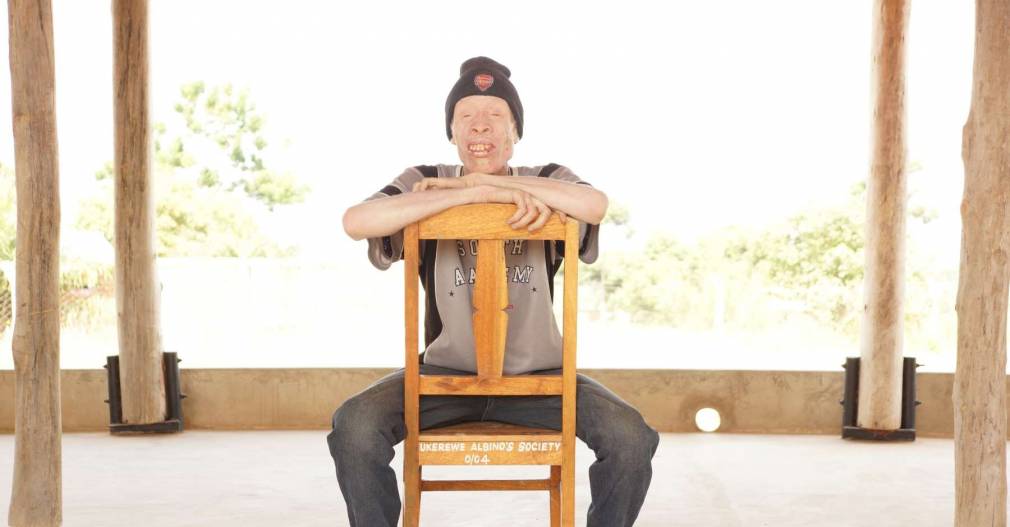Sunday, June 13th, marks International Albinism Awareness Day, a United Nations effort to educate and mobilise around the rights of people with albinism worldwide, and celebrate their achievements under this year’s theme of “Strength Beyond All Odds”.
A genetic condition affecting a person’s ability to produce melanin that leaves skin, hair and eyes pigment-free and extremely vulnerable to the sun, it is estimated that 1 in every 17,000 -20,000 people in Europe and North America have some sort of albinism. In sub-Saharan Africa, the figure is far higher, and in Tanzania an estimated 1 in 1,400 is affected.
In Tanzania, Malawi, and elsewhere on the continent people with albinism must also contend with discrimation and violence in addition to the health risks associated with the condition. Superstition and fear means people with albinism are routinely subject to murder, rape and mutilation motivated by an erroneous belief that those with the condition are somehow supernatural; their bodies fetishised and coveted.
However, against all these odds, people with albinism continue to not only survive but excel in all domains of life and no story is more emblematic for us at PAM than that of Tanzania Albinism Collective whose new video we proudly premier for you today.
Filmed on the shores of Lake Victoria, this abstract video accompanies the haunting lament “Swimming in Sorrows” from the collective’s second album Our Skin May Be Different, But Our Blood Is The Same, the follow-up to 2017’s White African Power. Produced by Grammy award-winning producer Ian Brennan, known for his work with Tinariwen and The Good Ones, this is the story of how Brennan connected with the community after Brennan visited the group’s home on Ukerewe (Africa’s largest inland island) which led to a songwriting workshop. Brennan explained when we caught up with him on the eve of this premiere.
“There’s an overabundance of people that are disadvantaged, persecuted or underrepresented around the world” begins Ian on the line from Italy, “and the idea for doing this came long before we were actually able to do it. It was not a fast process and began a year in advance when we connected with the NGO Standing Voice who work with people with albinism in a sort of triage of health, education and advocacy. They put the word out to the community in Ukerewe which is more than 100 people, and 20 people said, ‘yeah, we want to do it, that sounds cool. Like, that’s something we would participate in.’ So they began to meet once a week to get ready, and two months ahead of us going we were able to send a guitar, a keyboard and a bass guitar.”
However when Ian and the team arrived they found the instruments untouched as Ian recalls: “They were new instruments, but not expensive or fancy, but understandably, they [the soon to be collective; author’s note] were somewhat intimidated.”
Reflecting on this inauspicious start, Ian continues: “It was probably my fault – we really wanted them to think of the instruments as theirs to have and to keep. But after this disappointing first moment we just went around and asked everybody to touch the instruments, encouraged them to hit them, bang them, touch them, and then we made an agreement with everyone that someone would take one of those three instruments home every night if they wanted to but they had to promise that if they took the instrument home, they would come back the next day with a song that they’d written on that instrument.”
It is worth noting here that in Tanzania people with albinism are often forbidden to sing in church, so being given permission and encouragement to make music was unfamiliar. It didn’t take long though to convince the debut songwriters, as Ian explains:
“Some people got into it and came back with more than one song! And over the course of the recording (we over-recorded, which we try to do in these projects) it got better, people got more confident and they got freer with each passing day.”

And so from that first session twenty-five songs were selected for White African Power, produced by Brennan with a DIY approach to group music making and featuring many found objects such as a giant water barrel repurposed as a musical instrument. Lyrically the music created by the group during this session consisted of testimony of their experience as Ian elucidates:
“Many of them tell the same story of growing up, which is that they really thought they were the only person with this condition in the world. Because they were that isolated. If they were fortunate enough to not have been abandoned [how the community comes to exist on the island is complex and is a combination of seeking refuge and shelter and a high prevalence of albinism on Ukerewe; author/editor’s note] the majority of them were then at least isolated and family would leave them behind for example when they went to the market or to church. And so they were forced to live, you know, apart. So many of them have shared a sense that it was somehow shameful or their fault, as opposed to something that was just a matter of fact as opposed to a defining factor.”

Furthermore the group had stories of intimidation and violence for which music was a much needed catharsis. “Virtually all of them have been subjected to, beyond ostracization, you know, a lot of menace, or even open threats. I think just the knowledge that people might want to kill you, or maim you, for your body parts is something that very few people have to ever even think about – but it’s a daily reality for them,” acknowledges Ian, continuing:
“I mean, it’s horrific stuff. It represents a very small percentage of the population of Tanzania or Malawi or that island, but at the same time, it [the perpetration of violence against people with albinism; author/editor’s note] is a shared phenomenon and there’s a lot of trauma.”
About “Swimming in Sorrows” Ian says: “I think the mark of a great vocal is when you can sing the same phrase more than once. And each time it reveals something new about what it is that you’re saying. And I think a lot of the beauty of it is that it transcends English or whichever language something is being sung in. A lot of the song titles share a lot of the same themes, which is the isolation and the fear, but also the pride.”
Not only did Tanzania Albinism Collective prove prolific songwriters they also proved performers par excellence travelling outside of Tanzania for the first time in 2017 to appear at the WOMAD festival in the UK.
Before signing off I ask Ian if the group has continued to compose since that very fruitful workshop.
“Yes I heard recently, and I’ve reconfirmed it since, that now the collective meets twice a week! Within the community, music making has become a way of sharing their messages, and building solidarity.”
Thus Tanzania Albinism Collective personifies the theme of this year’s International Albinism Awareness Day. Their music and message are worth celebrating, not just today, but everyday.




